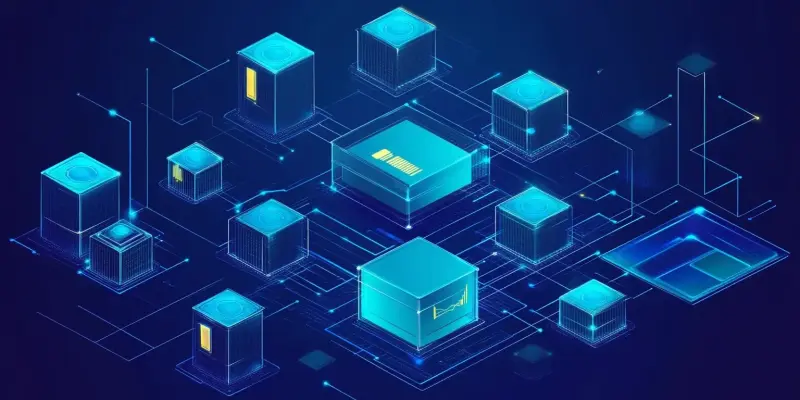In a groundbreaking move that promises to reshape the landscape of blockchain technology, AGII has introduced self-learning decentralized networks that seamlessly merge advanced artificial intelligence with blockchain. This innovative platform is designed to dynamically adapt and operate autonomously in response to real-time data, marking a significant advancement in the infrastructure of Web3. By leveraging AI models to continuously analyze usage patterns, optimize processes, and autonomously enhance functionalities, AGII is leading the charge to make decentralized applications (dApps) and blockchain platforms more intelligent, efficient, and resilient.
Real-Time Decision-Making and Resource Management
One of the standout features of AGII’s technological advancements is the AI algorithms’ remarkable real-time decision-making capabilities. These algorithms allow networks to detect congestion, address vulnerabilities, and manage resources with a high degree of precision. As a result, networks experience reduced latency, improved security, and overall enhanced user experiences for developers, businesses, and end-users alike. The automation of key operational aspects ensures that these networks can achieve self-sustained growth and adaptability, contributing significantly to the ongoing evolution of blockchain technology.
These self-learning capabilities are integral to reinforcing AGII’s leadership in the AI and Web3 sectors. By enabling developers and businesses to build systems that anticipate challenges and identify opportunities, AGII pushes the boundaries of what blockchain innovation and intelligent automation can achieve. This capability makes decentralized networks not only more robust but also more adept at meeting the diverse and complex requirements of modern digital ecosystems.
Integrating AI-Driven Learning into Decentralized Infrastructure
AGII’s focus on integrating AI-driven learning into decentralized infrastructure underscores its crucial role in the future of blockchain technology. The company’s advanced platform enhances the potential of Web3 applications to address complex demands effectively. By employing self-learning algorithms, AGII ensures that decentralized systems continuously improve, adapt to new conditions, and optimize their performance, thereby providing a reliable environment for all users.
The implications of this technology extend far beyond mere enhancements in speed and security. They herald a new era wherein blockchain-based systems can autonomously evolve, tackling unprecedented challenges and seizing new opportunities without manual intervention. This approach significantly streamlines operations and reduces the likelihood of human error, thereby making the digital ecosystem more robust and trustworthy.
AGII’s Pivotal Role in Shaping the Future
In a revolutionary development set to transform blockchain technology, AGII has unveiled self-learning decentralized networks that seamlessly integrate advanced artificial intelligence with blockchain. This groundbreaking platform is engineered to automatically adapt and function in real-time, marking a major milestone in Web3 infrastructure. By harnessing AI models to continuously scrutinize user behaviors, streamline operations, and autonomously improve capabilities, AGII is at the forefront of making decentralized applications (dApps) and blockchain environments more intelligent, efficient, and robust. These self-optimizing networks enable decentralized systems to evolve and enhance themselves without manual intervention, based on live data. This synergy between AI and blockchain paves the way for more sophisticated and resilient decentralized ecosystems, heralding a new era where systems learn and grow autonomously, thereby pushing the boundaries of what is possible in the realm of blockchain technology. By driving the next wave of innovation, AGII is setting new standards for efficiency and resilience in decentralized systems.

